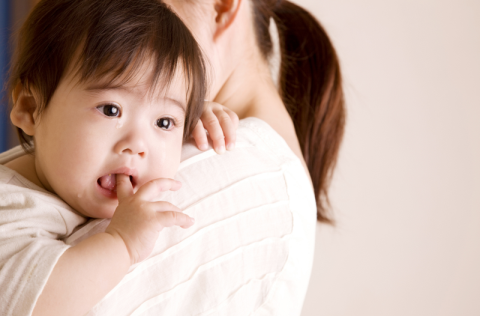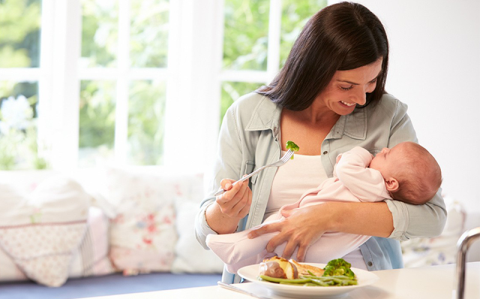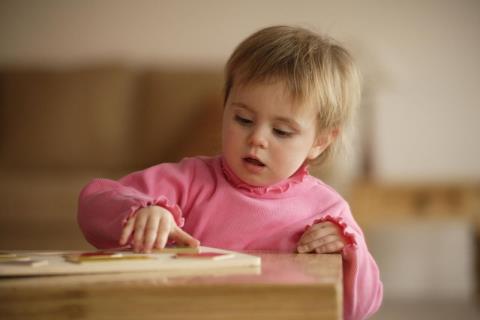Digestive disorders in children can cause concern for parents. Knowing these things, parents can calmly handle when their baby has digestive disorders.
Digestive disorders are not a dangerous disease but are very common in children. A survey has shown that more than 40% of children have digestive disorders. Just knowing the information below, parents can calmly handle when their baby's digestive system is unstable.
Causes of digestive disorders in children
Finding out the exact cause will help parents know how to handle when children have digestive disorders effectively. According to specialists, children have digestive disorders due to common causes such as:
Digestive system is still immature
In young children, the pancreas and salivary glands cannot secrete enough amylase enzyme to digest starch. The liver is also not really mature enough to efficiently metabolize carbohydrates, fats, and proteins. The stomach also does not secrete enough gastric juice to digest food. The immature digestive system combined with a sudden change in diet can easily cause digestive disorders.
Use of antibiotics
Digestive disorders in children also often occur when the baby has to take antibiotics for a long time. Antibiotics kill disease-causing bacteria, but they also inadvertently destroy the group of beneficial bacteria in the intestinal tract. When the ratio of good bacteria decreases, the rate of bad bacteria increases, digestive problems begin to appear.
 There are many reasons why a child's digestive system is unstable
There are many reasons why a child's digestive system is unstable
Contaminated food or food allergy
Contaminated food, raw food can contain many types of bacteria such as: Salmonella, E. coli, Staphylococcus aureus, Bacillus cereus... They cause food poisoning and the most common manifestation is diarrhea . Many babies have digestive problems due to allergies to proteins or lactose in milk or to ingredients in foods.
Improper nutrition
Doctors also believe that inappropriate food is also the cause of digestive disorders for children. Food that is too hard, the amount of food exceeds the needs or eating too much protein and fat is also the cause of indigestion, bloating and bowel movements in children.
Imbalance of intestinal microflora causes digestive disorders in children
In a healthy gut, good bacteria and bad bacteria live symbiotically. In which, beneficial bacteria accounted for 85%. The ratio of beneficial bacteria is too low, the rate of harmful bacteria is too high, leading to dysbacteriosis. Intestinal disorders will be difficult to avoid digestive disorders in children.
Children with illness
Intestinal diseases such as enteritis, colitis, and stomach ulcers are also "culprits" of digestive disorders. Many children with celiac disease will also have severe digestive problems when they eat foods containing gluten, a protein found in barley and wheat.
Signs of children having digestive disorders
Besides the cause, parents also need to understand the symptoms of digestive disorders in children so as not to worry too much. When seeing a child with one of the following signs, parents may "suspect" the child to have a digestive disorder:
Children defecate too much or too little
Children with too many bowel movements a day or for 2-3 days or more without defecation are alarming bowel disorders. Diarrhea may be accompanied by live stools, stools with mucus, stools with blood.
 The most recognizable sign of digestive disorders in infants is bowel disorders
The most recognizable sign of digestive disorders in infants is bowel disorders
Vomiting and nausea a lot
Children vomiting many times within 6 hours is also a sign of digestive disorders in infants. However, the majority of infants under 6 months of age often experience physiological regurgitation. Therefore, parents must follow up carefully to avoid confusion leading to detecting digestive disorders too late.
Dull or severe abdominal pain
Digestive disorders in children also often present with abdominal pain. Babies who do not know how to talk when their stomach hurts will cry violently and cannot be comforted. Along with that, there are signs such as baby flexing his legs to his stomach, grimacing face, clenched fists, etc. Children may have intermittent abdominal pain, the level of pain will increase gradually when the digestive system is stimulated.
Flatulence, indigestion, poor appetite
Bloating can cause a baby's belly to become round, knocking and resonating even after eating for 1 to 2 hours. Air build-up in the stomach causes discomfort. So the baby does not want to eat, eat less than half of the daily diet. Many children also feel nauseous when they see food.
Comes with a fever
Fever is not a very common manifestation of digestive disorders in children. However, when the intestinal tract is infected, the body will have an anti-inflammatory response and body temperature will rise. Children with fever should be closely monitored to avoid dehydration and convulsions.
 Early detection of digestive disorders in children will limit the impact on physical and mental health
Early detection of digestive disorders in children will limit the impact on physical and mental health
How to handle digestive disorders in children?
In most cases, digestive disorders in children are not life-threatening. But if parents do not take care of children with digestive disorders properly, this condition will prolong physical decline, affecting the health of children. Avoid the case that children have digestive disorders for too long, causing their digestive system to be damaged, causing long-term consequences such as anorexia, growth retardation or some other dangerous acute complications.
Here are the things parents need to do as soon as their child has a digestive disorder:
Rehydration and electrolytes
Digestive disorders lead to diarrhea, vomiting, fever ... These conditions cause dehydration, loss of chlorine and sodium, so parents need to pay attention to rehydration for children. For babies, parents need to increase the number of feedings. Children over 1 year old need to drink a lot of water, especially electrolyte replacement drinks.
Ensure proper nutrition
In addition to maintaining nutritious meals, mothers should develop more special daily menus for their children. Some foods are suitable for children with digestive disorders such as: Sweet potatoes, apples, bananas, dark green vegetables, white meat. At the same time, avoid giving your baby greasy foods, hot spicy foods, milk and dairy products (except for unsweetened yogurt);, soft drinks, carbonated drinks...
Supplement with probiotics
Digestive probiotics effectively reduce the symptoms of digestive disorders in children. Probiotic products help supplement beneficial bacteria, balance intestinal microflora. Not only quickly improve digestive disorders, probiotics also help children eat better, better absorb, higher resistance.
Digestive disorders in children can be cured with probiotics, foods that support digestion
Digestive disorders in children are not uncommon, even many children have repeated episodes. With the above knowledge, hopefully wise parents will be calmer and more confident to take care of their children when having digestive problems. Wish the baby always healthy so that the parents are always happy!

 There are many reasons why a child's digestive system is unstable
There are many reasons why a child's digestive system is unstable The most recognizable sign of digestive disorders in infants is bowel disorders
The most recognizable sign of digestive disorders in infants is bowel disorders Early detection of digestive disorders in children will limit the impact on physical and mental health
Early detection of digestive disorders in children will limit the impact on physical and mental health 




